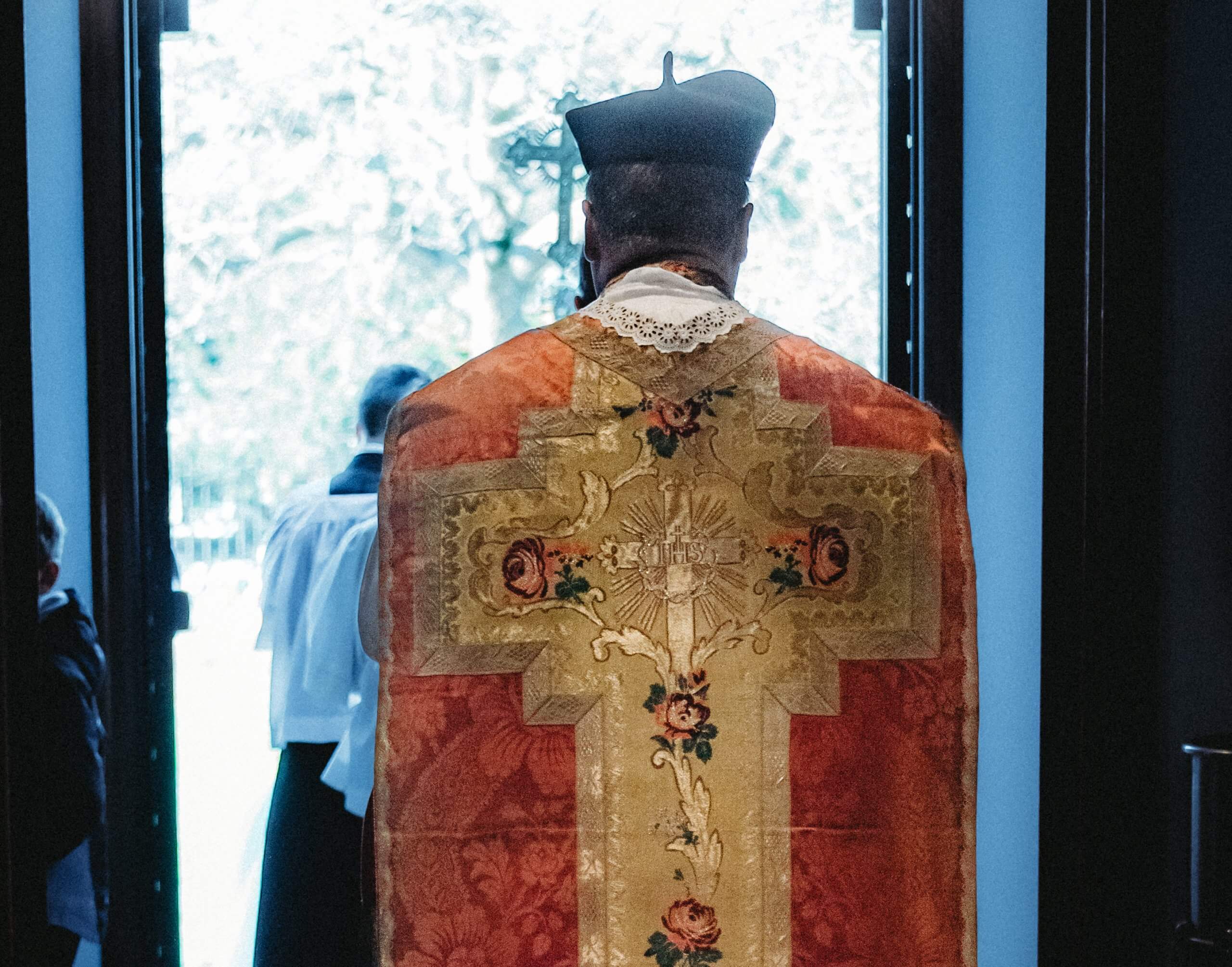The scene: a small church in some out-of-the-way place. Early morning sunlight dimly filters through a small window, revealing smoke curling up from two just-extinguished candles. There are six candles in all, upon an altar that is hard against the wall. Some placards with prayers in Latin are spaced along the altar. It is quiet. Several figures are huddled near the altar, waiting for the priest to acknowledge them. It is the second Sunday of Advent.
Still meditating on the Gospel, the priest at length said to them, “What did you come here to see? A man whispering incantations? A sorcerer changing bread to flesh and wine to blood? An automaton kneeling and standing and gesturing?”
Silence.
“Why then have you come?”
And they made answer to him, “We have come because you have the words of eternal life. We have searched for you, now three generations on. We were blinded in our cribs. We sought the holy bread from our fathers, but were given stones. In our time of trial, we knocked seeking refuge, but the doors were locked against us.
“We have come that we might offer right worship and sacrifice to our God who created us from the beginning of time. And that we might do so more abundantly in a place where the holy angel from heaven guards, cherishes, protects, visits and defends all assembled. Where Michael the Archangel stands at the right side of the altar of incense.
“We have come to hear the writings from the ancient books and the songs from our ancestors, that they may unite us to countless generations of holy men and women.”
A pained expression came over the priest and he stared past them. He had been skeptical when he saw this group. So many had come lately to demand an end to the old-fashioned ways. Finally the priest refocused and said in reply, “We have seen now the abomination of desolation. The signs of the times are clear warning of what has begun. Can you drink of the chalice that I drink of?”
They answered as one. “We can.”
Then the priest sighed deeply. Looking into the eyes, no, the very soul, of each one of them, he saw their fear and their hope. He felt new strength well up in him. He said, “You shall indeed drink of the chalice that I drink of. And we shall drink of it together.”
They did not flinch.
***
They could not have known that earlier that very morning the priest had stared into the abyss. He had had a vision of himself, standing before his bishop and being given the ultimatum: give up the old Mass and sacraments or be banished without faculties into the world. He was reminded of his vow of obedience to the bishop, solemnly sworn before God and his brother priests on the day of his ordination. But he was torn; his conscience unquiet. What would he say?
He had been reading and praying over this. What is the duty to obey an unjust order? Who is to decide whether a superior’s order is unjust? What is the duty of a priest to his parishioners? Can a successor of the apostles be wrong? Would this be happening if Pius X were pope? Is his own soul in peril if he submits?
He knew that the matter would not end with his decision when that day came. He would not simply melt into the community and become invisible. No, he would continue to say Mass every day. The Tridentine Mass. And people would find out. And they would come — unbidden — to hear that Mass, wherever he might offer it.
Regardless of orders from Rome and ultimata from bishops, the old Mass and sacraments would continue, as he and dozens, perhaps hundreds, of men like him continued to live their vocations, rather than bend to someone else’s vocation. This would continue until Jesus Christ rescued His church or — more likely — until the abomination of desolation culminated.
The priest had prayed that morning for a sign from God. Now before him stood seekers who had been deprived of their birthright, but who nevertheless had found him and begged for right worship. He understood the sign.
Photo by Allison Girone. Used with permission.


